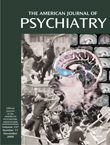Behavioral Symptoms and Psychiatric Diagnoses Among 162 Children in Nonalcoholic or Alcoholic Families
Abstract
OBJECTIVE: People with alcoholic relatives have high rates of alcohol abuse and dependence as adults, but their patterns of problems earlier in life are less clear. Many studies have not controlled for parental disorders other than alcoholism or for parents’ socioeconomic status and general life functioning. The authors’ goal was to conduct a study controlling for such factors. METHOD: Personal structured interviews and a behavioral checklist were administered to the parents of 162 children 7 years old or older whose fathers had participated in the 15-year follow-up of 453 sons of alcoholics with no history of antisocial personality disorder and sons of nonalcoholic comparison subjects originally selected from a university population. RESULTS: There was no significant relationship between a family history of alcoholism and childhood diagnoses of conduct, oppositional, or attention deficit disorders or with behavioral checklist summary scores. However, children with alcoholic relatives apparently have a slightly higher risk for drug abuse or dependence than those without alcoholic relatives. CONCLUSIONS: Once familial antisocial disorders and familial socioeconomic status are controlled for, a family history of alcoholism does not appear to relate to childhood externalizing disorders.



